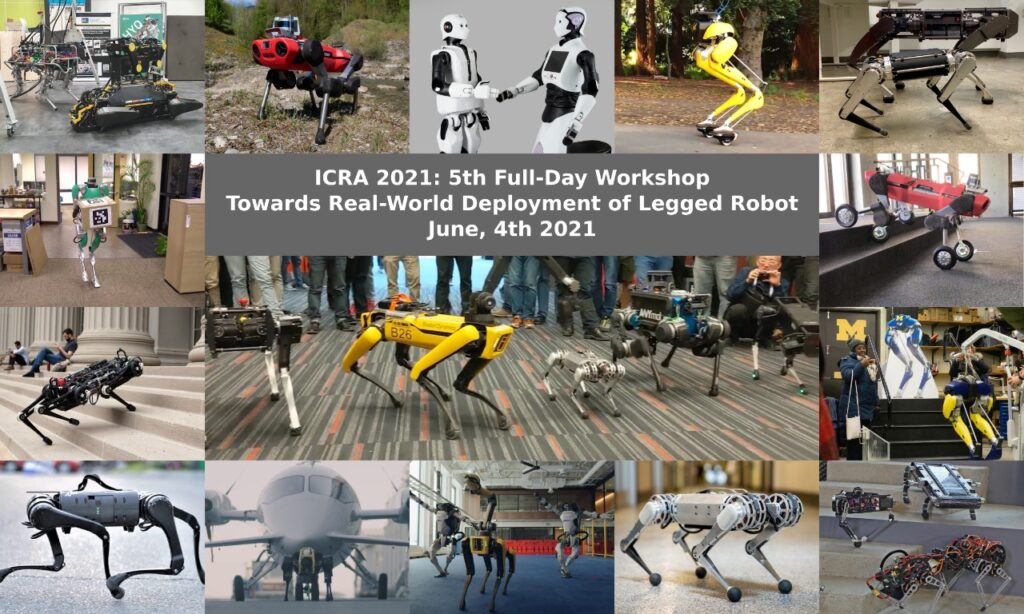
Most real-world difficult to access environments share common features such as rough, unstable, deformable and unstructured terrain. These, coupled with degraded perception such as low visibility, makes these environments, truly dangerous and difficult for humans to access. In these environments, legged robots have inherent advantages in locomotion over their wheeled or tracked counterparts. Their ability to move on terrain with only discrete footholds as opposed to continuous paths, ability to step over obstacles, and being able to adapt the overall form factor to suit the conditions by posing the body, changing leg configurations etc. makes legged robots uniquely suited for performing tasks in scenarios such as aftermaths of disasters as well as monitoring and surveillance in complex and cluttered environments. Despite these capabilities, there still remain many challenges in making these walking robots suitable for widespread deployment in real-world use cases. This workshop series continues to investigate what technological ingredients are missing for the effective widespread deployment of legged robots. Invited speakers from industry and academia will be featured along with their robots in this workshop, and papers highlighting problems and solutions in this domain will be solicited.
Topics of interest
Design and Control
– mechatronical design
– exoskeleton design
– optimization-based co-design
– MPC and whole-body control
– nonlinear and safety-critical control
Path Planning, Perception, and Mapping
–optimization-based and perceptive motion planning
–sensor fusion under uncertainty
–SLAM in static/dynamic environments
–rough terrain locomotion and collision avoidance
Machine Learning
– learning motion
– learning perception
– dynamics and control with learning
Real-World Applications
– disaster response
– industrial inspection
– payload delivery
– robotic assistive devices
Support
This proposed workshop is supported by the IEEE RAS Technical Committees on:
1) Whole-Body Control [via Prof. Jaeheung Park]
2) Mechanism and Design [via Prof. Matei Ciocarlie]
3) Algorithms for Planning and Control of Robot Motion [via Prof. Tsz-Chiu Au]
Previous Workshops
– ICRA 2020, Paris, France (online) [site]
– ICRA 2019, Montreal, Canada [site]
– ICRA 2017, Singapore [site]
– IROS 2015, Hamburg, Germany [site]